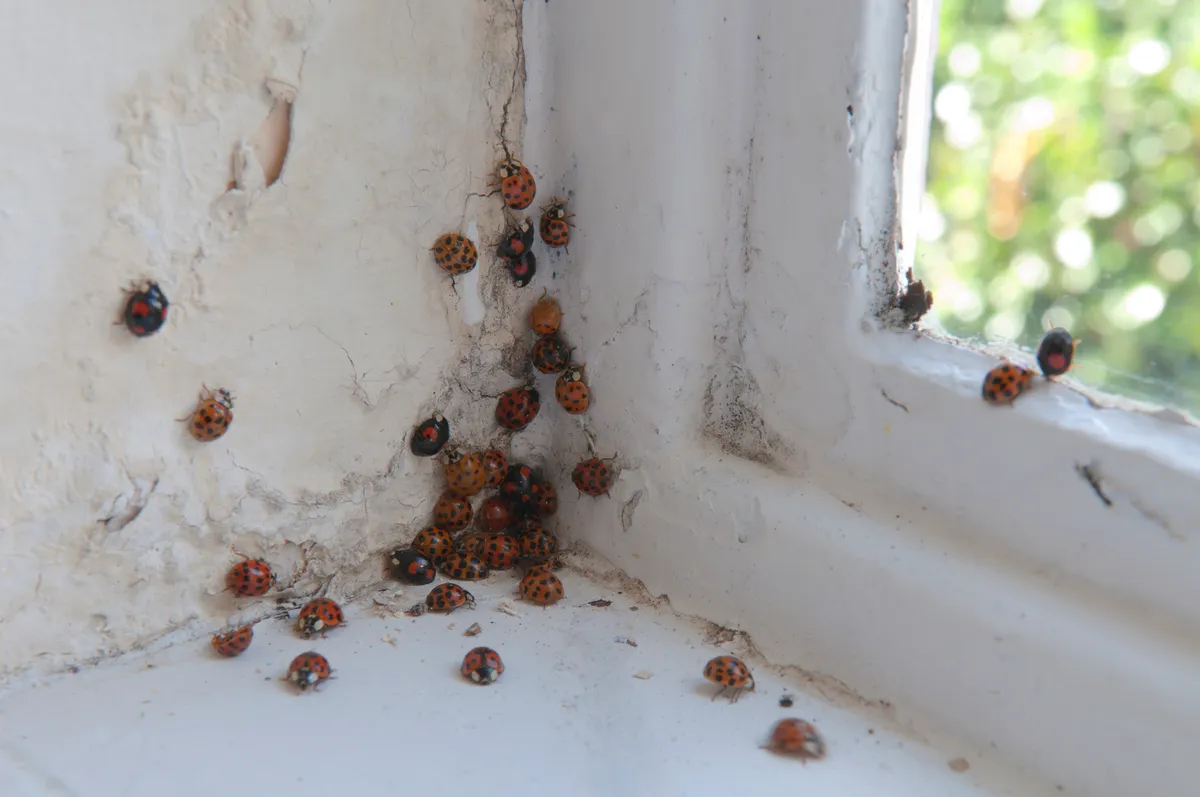If news reports are to be believed, the ‘cannibalistic’, ‘STD-ridden’ harlequin ladybird stinks out our homes, stains our furnishings, poisons our pets, bites people, induces allergic reactions and generally ‘wreaks havoc’. But are the reports to be believed?
Not according to ecologist Helen Roy, who explains that there may be little doubt that harlequins are having an impact on our wildlife – they eat and outcompete native two-spot ladybirds. “But from the human perspective, they are nothing more than a very minor nuisance,” she says.

True, some people might not like the smell, which derives from a yellow defensive secretion that can indeed cause stains.
“All ladybirds have a slight taint to them,” says Roy. “If you have 200 in your window frame, it’s going to be stronger, but it doesn’t travel far. And hoovering them up probably makes it worse.”
But what if you’re allergic to them? “I’m sure every insect bite could produce an allergic reaction in some people,” says Roy. “But it’s so rare that I’ve only heard of two or three cases.”
Similarly, the chances of a pet being poisoned are vanishingly small. “The only case I’ve come across was a dog that got a mouthful of them.”

Neither will they be spreading sexually transmitted diseases. The fungal infection in question is, says Roy, “absolutely no risk whatsoever. It’s barely transmissible to other ladybird species, let alone anything else.”
The risk of bites has also been greatly exaggerated. “In all the decades I’ve been working with ladybirds, I’ve had one bite – from a seven-spot. I can’t begin to describe how minor it was.”
The only ones benefitting from the scare stories are pest controllers.
“The great shame is that they could be harming other species as well. There’s no specific control method for harlequins, and two-spots also like to overwinter in houses.”
